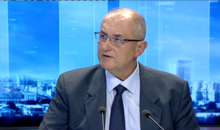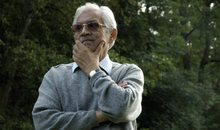
 Flash News
Flash News
Shuhet në moshën 86-vjeçare regjisori i njohur Piro Milkani
Poisoning of children in Gramsh, health authorities react after the publication of the case
SPAK conducts inspections at Tirana Municipality, 5 phones seized
4 days after the intervention at a dental clinic in Tirana, a 63-year-old Italian man dies in hospital
Igli Tare officially appointed as Milan's new Sporting Director
NATO chief diplomats meet in Brussels, Rubio confronts allies alarmed by Trump's moves
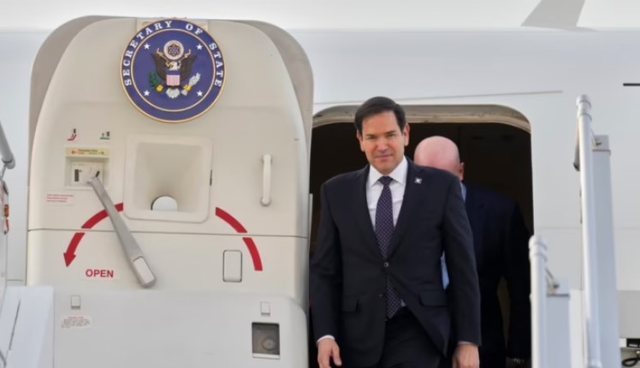
On April 3, NATO foreign ministers will begin a two-day meeting in Brussels, where they will discuss strengthening the alliance's defense capabilities, as European countries face growing pressure from the United States to increase defense spending.
NATO Secretary General Mark Rutte said the two-day meeting takes place at "a particularly critical moment for our common security, with challenges too great for us to face individually."
Rutte insisted that the US remains committed to the alliance, despite criticism that US President Donald Trump is undermining transatlantic relations.
"I know there has been harsh rhetoric. I know there have been allies, for example, on this side of the Atlantic, who are concerned about the long-term commitment of the US to NATO," Rutte said.
"The Americans have repeatedly said: 'We are committed to NATO. We are committed to Article 5,'" he added, referring to the alliance's commitment to collective defense.
"I am absolutely convinced that this alliance will continue to exist with the US. Their commitment is absolutely clear," Rutte said.
NATO allies are determined to present a united front to oppose Russia's full-scale invasion of Ukraine, but European allies are feeling their efforts are being marginalized.
In seeking a quick ceasefire agreement, Washington has suggested that Ukraine may have to make territorial concessions. The US has also taken steps to resume dialogue with Russia.
US Secretary of State Marco Rubio is expected to attend the meeting along with Ukrainian Foreign Minister Andriy Sybiha and European Union foreign policy chief Kaja Kallas.
Rubio could face questions from allies who are alarmed, angry and confused by President Donald Trump's administration's moves to improve relations with Russia and its verbal attacks on longtime transatlantic partners.
Based on what they have seen and heard since Trump took office in January, European officials have expressed deep concerns about the future role of the US in the Western military alliance.
Rubio is likely to be pressured to explain Trump's expressed desire to make NATO ally Canada the 51st U.S. state, as well as his attempt to annex Greenland, which is an autonomous territory within the Kingdom of Denmark, another NATO ally.
Rubio arrived in Brussels on April 3. He will be accompanied in Brussels by the newly confirmed US ambassador to NATO, Matt Whitaker.
He is expected to convey the message that European allies should increase defense spending and share more of the financial burden.
In June, NATO leaders are expected to decide whether to raise the defense spending target for each member from the current minimum of 2 percent of gross domestic product.
The Trump administration has floated the idea of a minimum of 5 percent of gross domestic product. Meanwhile, Rutte is pushing the idea that each ally commit to spending at least 3.7 percent on defense as soon as possible, and have regular reports on progress.
But some European allies will be hesitant to commit quickly to large defense spending, given that they are facing slow economic growth and rising budget deficits.
Sybiha is expected to brief her counterparts on the latest information regarding the situation on the battlefield.
Ukraine's membership in the alliance is not on the agenda at the moment, but most European allies are interested in at least ensuring that American weapons will continue to be sent to Ukraine and that NATO's training mission for Ukrainian soldiers will continue to operate.
So far, everything is continuing as before. There has been no change in the position of American troops on NATO's eastern flank.
What has changed, however, is that the US no longer chairs the Contact Group for the Defence of Ukraine, known as the Ramstein Group, which coordinates military support for Kiev. The UK chaired the group's last meeting in February, and the next meeting, scheduled for April 11, could be co-chaired by the UK and France./REL
Latest news


Kujdes nga mashtrimet online, si teknologjia nxit krimet financiare
2025-05-24 21:32:33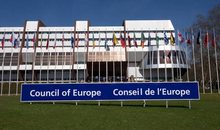
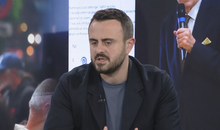
Opposition's denunciations, Xhaferri: We expect the US to listen to us
2025-05-24 20:48:06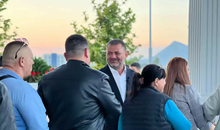
How did PSD "capture" over 50% of the votes in rural areas?
2025-05-24 20:29:54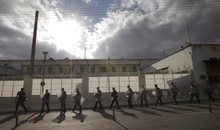
The Albanian woman with the s*x went to meet her husband in Koridalos prison
2025-05-24 20:09:15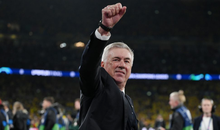
Ancelotti says goodbye to Real Madrid in tears: I love you with all my heart!
2025-05-24 19:49:08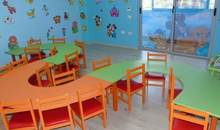
Poisoning in Gramsh, parents of children warn of protest
2025-05-24 19:21:36
Taulant Xhaka retires from football
2025-05-24 18:53:35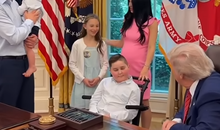
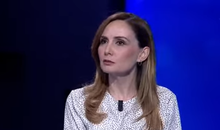
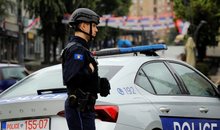
Incident in the north, Serbia issues arrest warrant for Kosovo police officer
2025-05-24 17:59:24
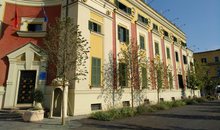
SPAK conducts inspections at Tirana Municipality, 5 phones seized
2025-05-24 17:19:23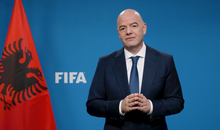
FIFA President congratulates Egnatia on the championship title
2025-05-24 17:00:15
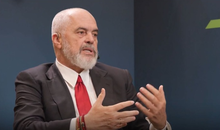
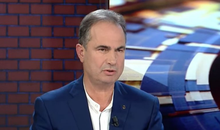
Boçi: The elections were annulled, the DP will continue the fight
2025-05-24 16:06:58
Man reports to police: Wife took my son and ran away, I'm asking for help
2025-05-24 15:45:55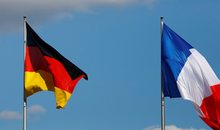
France and Germany with a "non-paper" for Republika Srpska
2025-05-24 15:29:29

Beware of online scams! Here's how technology fuels financial crimes in Albania
2025-05-24 14:53:33

The US military "landed" in Kosovo as part of "Defender Europe 25"
2025-05-24 14:42:19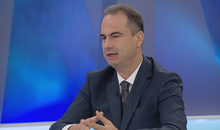
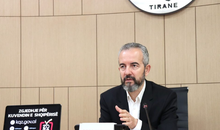
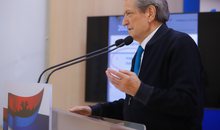
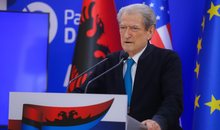
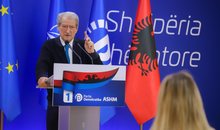
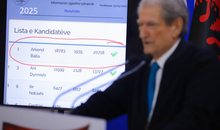
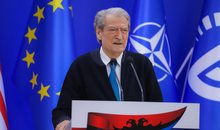
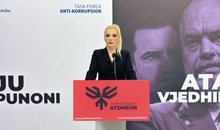

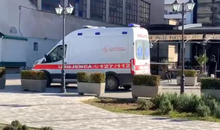
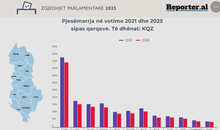
BIRN Analysis: Voters who were absent in the parliamentary elections
2025-05-24 11:19:40


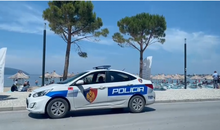
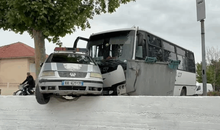
Bus collides with municipal police car in Fier, 6 injured
2025-05-24 09:25:01
Foreign exchange, May 24, 2025
2025-05-24 09:07:27

With rain and storms, get to know the weather forecast
2025-05-24 08:32:03
What do the stars have in store for you today?
2025-05-24 08:17:04
Morning Post/ In 2 lines: What mattered yesterday in Albania
2025-05-24 08:00:34
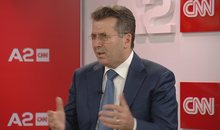
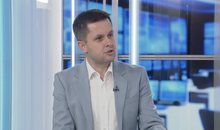


Tirana Lake Park, a campaign center for Noizy. The signatory is silent
2025-05-23 21:55:02


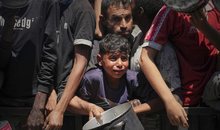
What's happening in Gaza, the struggle for survival in times of war in pictures
2025-05-23 21:02:54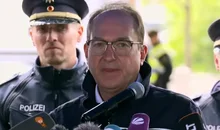
DW: Germany strengthens the return of illegal migrants!
2025-05-23 20:39:57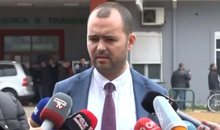


Knife attack at Hamburg train station, 12 injured
2025-05-23 19:54:58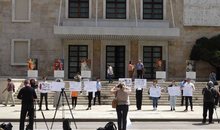
120 children go missing every year in Albania, 12 still missing in 30 years
2025-05-23 19:35:35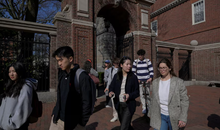
US court suspends order banning Harvard from admitting foreign students
2025-05-23 19:22:41
Zodiac signs that become luckiest after the third decade of life
2025-05-23 19:19:06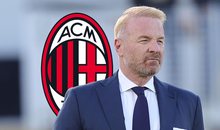
Igli Tare officially appointed as Milan's new Sporting Director
2025-05-23 19:01:12
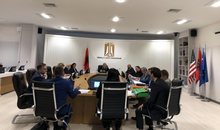
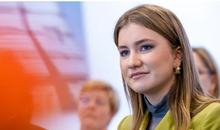
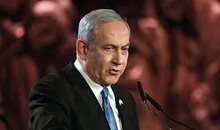

Istanbul Agreement, Ukraine and Russia exchange 800 prisoners
2025-05-23 17:54:20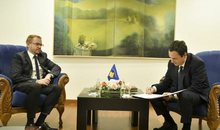



Belina Pupa reacts to serious accusations in Australia for drug cultivation
2025-05-23 16:59:55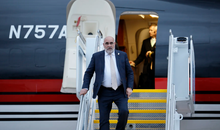


The Llogara tunnel opens tomorrow, until when will it be free of charge?
2025-05-23 16:09:31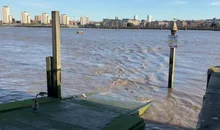
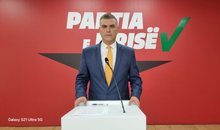
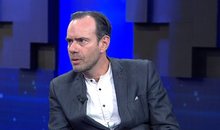

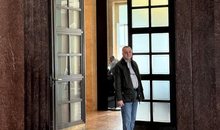

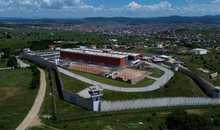
The first prisoners from Denmark are expected to arrive in Kosovo in April 2027.
2025-05-23 14:51:26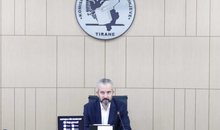
May 11/ Celibashi approves the summary tables of results for 4 districts
2025-05-23 14:50:04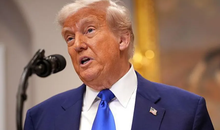
Trump threatens tariffs on EU goods and iPhones
2025-05-23 14:39:47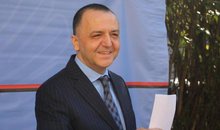
Artan Lame passes away, his mother confirms: This cursed moment came
2025-05-23 14:26:48
Divorce map in 61 municipalities, the South far ahead of the North
2025-05-23 14:15:16
2-year-old Dutch boy falls from third floor of Rinas hotel, taken to hospital
2025-05-23 14:01:40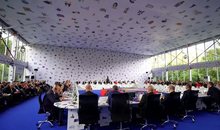
Europeans, you have slandered us.
2025-05-23 13:54:00
Vlora/ He hit the minor and fled the scene, the 27-year-old woman is wanted
2025-05-23 13:41:24
Arrested today in Lalëz, who is Flobens Meçja, was paid by Çopja to kill Alibej
2025-05-23 13:33:43
Here's how many hours you should sleep depending on your age
2025-05-23 13:32:16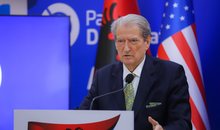
Berisha reveals when he will leave politics
2025-05-23 13:12:15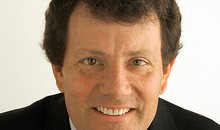
Three proven ways to dismantle an autocrat
2025-05-23 13:03:16
"The goods are 800-cents", how Altin Morina trained RENEA and made bargains
2025-05-23 12:59:07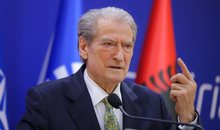
Berisha: Poja was Rama's guest, Surreli was used for gang meetings
2025-05-23 12:49:22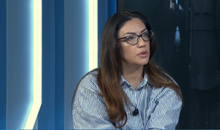
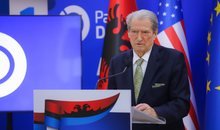

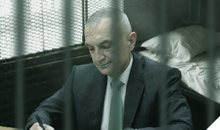
Meta: The criminal regime destroyed the elections, a threat to democracy
2025-05-23 12:16:48
